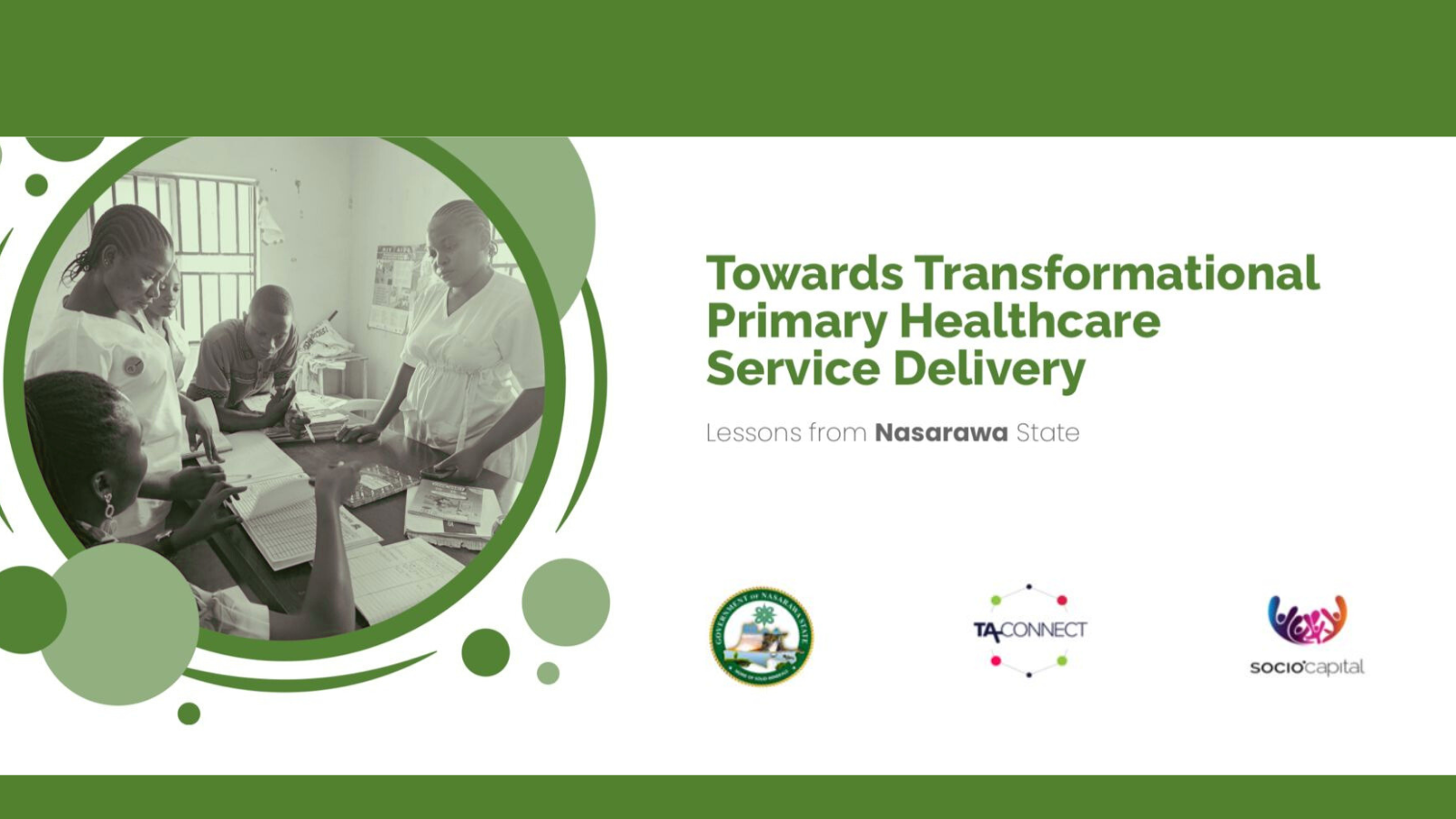Towards Transformational Primary Healthcare: Lessons from Nasarawa State

“Strong primary healthcare systems are built on strong foundations – capable leadership, reliable data, and communities that trust and use their local facilities.” – Paul Isiugo, Program Manager, Sociocapital.
This was the conviction that guided our work on the Strengthening Primary Healthcare (PHC) Systems Project in Nasarawa State, Nigeria, implemented with support from Technical Advice Connect (TA-Connect).
The project set out with a bold goal: to demonstrate that by improving management capacity and embedding data-driven decision-making, PHCs could become more efficient, accountable, and people-centered.
Why PHC Strengthening Matters
Primary healthcare is the first point of contact for millions of Nigerians. Yet, despite decades of investment, PHCs often underperform. Weak governance, poor coordination, staff absenteeism, frequent drug stock-outs, and poor data systems have left communities with little confidence in their local clinics.
Women and children pay the highest price when healthcare systems fail. To reverse this, we need more than new facilities – we need better management, better use of resources, and stronger connections between health systems and the communities they serve.
How we achieved PHC Strengthening in Nasarawa
Over an 18-month period, Sociocapital worked with the Nasarawa State PHC Development Agency (NAPHDA) and community stakeholders to strengthen 145 PHCs across 13 Local Government Areas.
The Project was deployed in two concurrent phases – Systems Strengthening and Capacity Strengthening phases, targeting specific management and M&E needs. This approach addressed gaps across the continuum of the four WHO leadership and management building blocks, emphasizing capacity building across 7 management areas and 12 M&E domains.
Here are the numbers from our intervention:
- 209 facilities improved health data management systems – boosting accuracy and enabling evidence-based decisions.
- 447 healthcare workers received tailored training and mentorship on leadership, data use, and service delivery.
- PHC absenteeism decreased by 8%, while the number of quality improvement meetings increased by 22%.
- Facilities implementing their business plans increased by 40%, reducing operational costs by 26%.
Most importantly, communities noticed the difference. They reported higher trust, satisfaction, and engagement with their local PHCs.
As one community member shared:
“Before this project, coming to the health center was often discouraging — medicines were not always available, and waiting times were long and staff treated us poorly. But now things have changed. The facility staff are more attentive, drugs are available, and we are treated with respect. I feel safer bringing my children here, and I trust the services much more than before.” – Delilah Dennis, Community Member, Garaku 1 Kokona LGA.
Key Lessons from the Primary Healthcare Systems Strengthening Project in Nasarawa
Our experience in Nasarawa underscores several lessons for Nigeria – and for other countries working toward universal health coverage:
- PHC Improvement takes time.
- Improving PHC systems is rather a marathon than a sprint.
- Successful PHC strengthening programs must consider evidence of what works and then scale it.
- Platforms perform better when aligned within a shared PHC vision.
- Institutionalizing PHC Management must start early.
- Technology is an enabler of PHC Improvement when appropriately optimized.
- Progressive and sustained PHC improvement requires collective efforts.
Scaling PHC Systems Strengthening across Nigeria, Africa
The Nasarawa project is more than a success story – it’s a blueprint for how to strengthen PHC systems at scale. By focusing on management, data, and community engagement, we’ve laid a foundation for a more resilient and equitable health system that can be scaled across the country and the continent.
As Dr. Usman Iskilu Saleh, Executive Secretary of NAPHDA, put it:
“This Project has been a game-changer for Nasarawa State. By embedding mentorship, stronger data systems, and practical management tools, we are not only improving service delivery today but laying the foundation for a more resilient and sustainable PHC system for the future.”
The journey to transformational primary healthcare is long, but Nasarawa State has shown us that progress is possible – with the right leadership, tools, and commitment.
Read the full report: “Towards Transformational Primary Healthcare Service Delivery: Lessons from Nasarawa State.”


